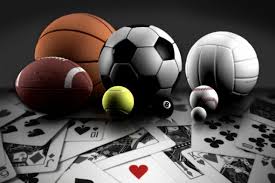
Top Poker Tournament Strategies 2025
As we move into 2025, the landscape of poker tournaments continues to evolve. Players are becoming more strategic, adapting to new trends and technologies that influence the game. This article will discuss the top poker tournament strategies that can give you the competitive edge needed to succeed at the tables. Whether you are a seasoned pro or a novice, these strategies will help enhance your understanding of the game and improve your performance. If you’re looking for an engaging platform to practice your skills, check out Top poker tournament strategies 2025 https://marvelbet-betting.com/bn/.
Understanding the Online Poker Environment
The rise of online poker has dramatically changed the way tournaments are played and perceived. In 2025, many players will find themselves competing in a virtual environment rather than traditional brick-and-mortar settings. This transition has brought about new strategies:
- Use of Software Tools: Today’s players often utilize various software tools to track their gameplay, analyze opponents, and adjust their strategies in real time. Familiarize yourself with tools like HUDs (Heads-Up Displays) to gain insights on your opponents’ tendencies.
- Game Selection: The online environment allows players to choose from a variety of tournaments with different structures. Selecting the right game with the optimal prize pool for your playing style is crucial to maximizing your profits.
Adapting to Different Stages of Tournaments
One of the most vital aspects of tournament play is understanding how strategies need to change as the tournament progresses. Here are some key adjustments:
Early Stages

During the early stages of a tournament, players should focus on building a solid chip stack while minimizing risk. Play tight and aggressive, taking advantage of weak players while avoiding confrontations with those who are likely to be holding strong hands.
Middle Stages
As the blinds increase and players start to get eliminated, the dynamics of the tournament shift. This is the time to start becoming more aggressive. Steal blinds more frequently and capitalize on the tendency of players to tighten up as they aim for cashing out.
Lategame and Bubble Play
When nearing the money bubble, the need for strategic aggression reaches its peak. Many players will tighten their ranges to ensure they make it into the money. This creates a prime opportunity for you to exploit their weakness and accumulate chips by stealing blinds and calling out tight players.
Final Table Strategy
At the final table, the stakes are high, and players are often pressured to make tough decisions. Here, adopting a balanced strategy that combines aggression with solid post-flop play will be key. Pay careful attention to the stack sizes and adjust your strategy accordingly—short stacks may make desperate moves while big stacks can leverage their chips to apply pressure.
Mastering the Art of Bluffing
Bluffing remains a significant part of poker strategies in tournament play. However, effective bluffing requires a deep understanding of your opponents and the situation. Here are a few tips:
- Know Your Opponents: Tailor your bluffing strategy according to the players at your table. Identifying tight players or those who are prone to folding can provide good opportunities for successful bluffs.
- Use Board Texture: Bluffing on favorable board textures can increase the credibility of your bet. For instance, if the board shows potential straights or flushes, use that to your advantage in convincing opponents you have a strong hand.
- Timing is Key: The timing of your bluff can greatly influence its success. Bluff in spots where players are more likely to fold, such as on the turn or river when the board becomes less favorable for their potential hands.
Emotional Control and Mental Stamina
Mental health and emotional control play a significant role in tournament poker. Long tournament sessions can be taxing, and managing your mindset is essential for peak performance:
- Stay Focused: Maintain concentration and avoid distractions. Take breaks if needed, allowing your mind to refresh for more strategic decision-making.
- Manage Tilt: Recognize your emotional state and pay attention to moments of frustration. Developing strategies to cope with tilt—such as mindfulness or taking a step back—can prevent poor decision-making.
- Maintain a Positive Attitude: Cultivating a positive outlook can influence your gameplay. Focus on what you can control, and adopt a growth mindset that views setbacks as opportunities for improvement.
The Power of Networking and Learning
Finally, the importance of connecting with other players cannot be overstated. The poker community is vast, with countless resources available:
- Join Forums and Groups: Participating in poker forums and groups can enhance your understanding of the game. Engaging with community members allows you to share knowledge and learn from the experiences of others.
- Study High-Stakes Play: Observing high-stakes tournaments can reveal advanced strategies employed by top players. Consider streaming platforms or recorded tournaments to analyze their gameplay and decision-making processes.
- Continuous Learning: Poker is a game of evolving strategies. Keep abreast of literature, videos, and courses that delve into modern tournament strategies to stay competitive.
Conclusion
As 2025 approaches, adapting your poker tournament strategies will be essential for remaining competitive in an increasingly skilled landscape. From understanding online play dynamics to mastering the many stages of a tournament, incorporating these strategies will help elevate your game. Stay focused, keep learning, and remember that both emotional control and networking greatly contribute to long-term success in the world of competitive poker.

